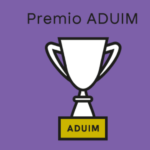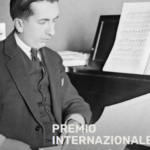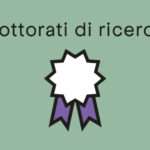11 Set Digital Sounds – New Technologies and Sonic Heritage (18-20 settembre 2019, Roma)
Digital Sounds – New Technologies and Sonic Heritage
The digitalization fundamentally changes our understanding and perception of music and sound. Until the late 19th century the primary form of making sounds reproducible was through notation. By the early 20th century technological advances had eventually led to the capturing of music and sounds with ever greater precision and better quality, making recordings not only available to a larger audience but also retrievable on demand. The latest step in this development is the introduction of digital recording systems in the 1970s, which came to revolutionize the music market—first with the Compact Disc and later with MP3 and other audio formats.
The digitalization, however, had not only an impact on the producing industry but also on how sound is being perceived in society—be it as an item of consumption, a mode of expression and communication, a bearer of meaning, or as an object of theorization. Indeed, the prevalence and easy accessibility of noises, sounds and music has had a profound effect on how we understand audible surroundings. The conference thus takes a fresh look at the world of hearing and listening, asking how technology transforms our understanding of sound and music and how sounds conversely create a space, in which culture reproduces itself.
The proceedings are accompanied by the first-time staging of previous concerts from the Montreux Jazz Festival Archives, creating a unique musical experience in which past music performances can be relived: the ground floor rooms of the villa have been transformed into familiar domestic and work environments where the concerts can be listened to and where, thanks to the EPFL’s Metamedia centre, you can navigate through the Montreux Jazz Festival archives, a unique treasure trove of rare audio-visual content.
The re-enactments comprise the performances of Etta James (1977) and George Benson (2015) on September 18, and PJ Harvey (2016) and Moderat (2016) on September 19.
In collaboration with École Polytechnique Fédérale de Lausanne (EPFL), Montreux Jazz Festival, Claude Nobs Foundation, and with the support of the Institut Français Italia, within the framework of the series of meetings on “Mondo Macchina e mondo vivente. Omaggio a Leonardo”.
Programma completo e dettagli
Angela Bellia (IBAM CNR)
Alessandro Bratus (Università di Pavia)
Alain Dufaux (EPFL)
Cristina Urchueguia(University of Bern)
Antonio Camurri (Università di Genova, Casa Paganini)
Christophe Fellay (EDHEA Sion)
Günther Giovannoni (Swiss National Sound Archives)
Irène Hediger (ICS Zürich)
Matthias Kohler (ETH Zürich)
Robin Meier (Artist)
Luigi Pizzaleo (Conservatorio S. Cecilia)
Jürgen Strauss (Strauss Electroacoustics)
Thibaut Carpentier (IRCAM Paris)
Madeleine Leclair (MEG Genève)
Giacomo Albert (Università di Torino)
Elvira Di Bona (Polonsky Academy, Jerusalem)
Sarah Kenderdine (EPFL)
Inga Mai Groote (University of Zurich)
Fabian Knauber (Sphereo)
Alessandro Olto (Università di Udine)
Didier Grandjean (University of Geneva)
Robert Grass (ETH Zürich)
Leila Zickgraf (University of Basel)









